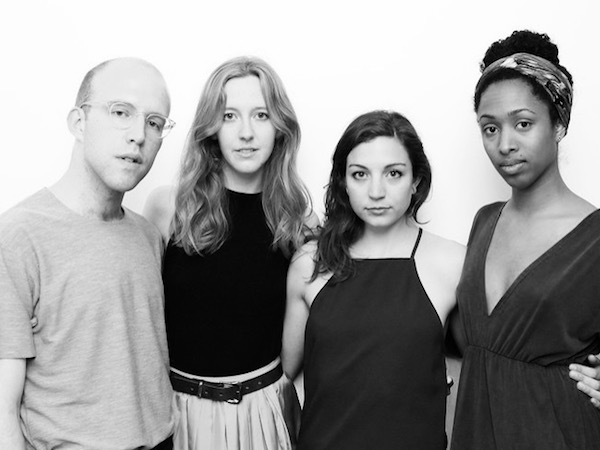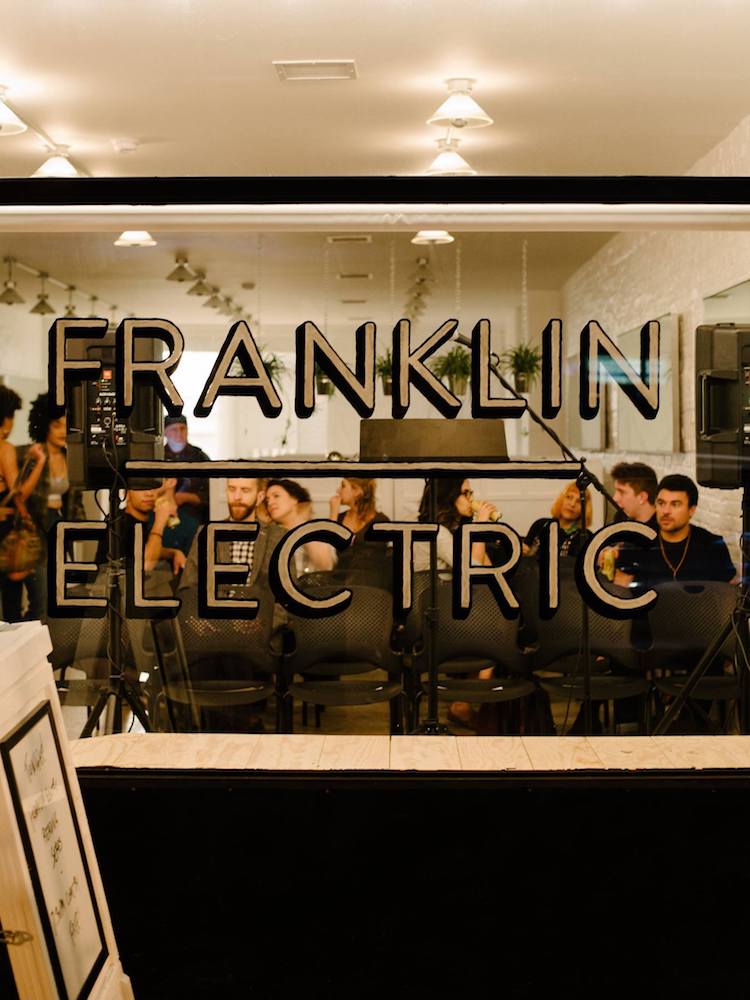Great American Read’s Top Ten Books, the American Poetry Museum, and More
Finalists for the Man Booker Prize share their inspirations; the rise of the Instapoet; poet Linda Gregerson on poetry and communication; and other news.
Jump to navigation Skip to content
Finalists for the Man Booker Prize share their inspirations; the rise of the Instapoet; poet Linda Gregerson on poetry and communication; and other news.
Haruki Murakami on his new novel; Stephen Elliot files lawsuit against creator of “Shitty Media Men” list; TV writers who started out as novelists; and other news.
Beautiful Boy is adapted from the memoirs Beautiful Boy: A Father’s Journey Through His Son’s Addiction (Houghton Mifflin, 2008) by David Sheff and Tweak: Growing Up on Methamphetamines (Antheneum Books for Young Readers, 2008) by Nic Sheff, and chronicles a family coping with addiction over many years. Starring Steve Carell, Timothée Chalamet, Amy Ryan, and Maura Tierney, the film is directed by Felix Van Groeningen.
Think about a place that has served as a sanctuary to you as a writer, whether in the past or present. Perhaps it is somewhere you’ve visited only once, somewhere you return to every year, or somewhere in-between. It could even be a writing retreat or residency. Write an essay about what makes this space so inspiring to you as a writer. Describe the setting using all the senses: You might include a favorite soft-cushioned chair, the aroma of fresh flowers, the colors of the walls, a favorite snack, or the sound of pen to paper. What are the elements that help motivate you to write in this place?
This morning the National Book Foundation announced the finalists for the 2018 National Book Awards. The annual awards are given for the best books of poetry, fiction, nonfiction, translated literature, and young people’s literature published during the previous year. The finalists will each receive $1,000; the winners, who will be announced on November 14, will each receive $10,000.
The finalists in poetry:
Rae Armantrout for Wobble (Wesleyan University Press)
Terrance Hayes for American Sonnets for My Past and Future Assassin (Penguin Books)
Diana Khoi Nguyen for Ghost Of (Omnidawn Publishing)
Justin Phillip Reed for Indecency (Coffee House Press)
Jenny Xie for Eye Level (Graywolf Press)
The finalists in fiction:
Jamel Brinkley for A Lucky Man (Graywolf Press)
Lauren Groff for Florida (Riverhead Books)
Brandon Hobson for Where the Dead Sit Talking (Soho Press)
Rebecca Makkai for The Great Believers (Viking Books)
Sigrid Nunez for The Friend (Riverhead Books)
The finalists in nonfiction:
Colin G. Calloway, The Indian World of George Washington: The First President, the First Americans, and the Birth of the Nation (Oxford University Press)
Victoria Johnson for American Eden: David Hosack, Botany, and Medicine in the Garden of the Early Republic (Liveright)
Sarah Smarsh for Heartland: A Memoir of Working Hard and Being Broke in the Richest Country on Earth (Scribner)
Jeffrey C. Stewart for The New Negro: The Life of Alain Locke (Oxford University Press)
Adam Winkler for We the Corporations: How American Businesses Won Their Civil Rights (Liveright)
The finalists in translated literature:
Négar Djavadi for Disoriental translated by Tina Kover (Europa Editions)
Hanne Ørstavik for Love translated by Martin Aitken (Archipelago Books)
Domenico Starnone for Trick translated by Jhumpa Lahiri (Europa Editions)
Yoko Tawada for The Emissary translated by Margaret Mitsutani (New Directions Publishing)
Olga Tokarczuk for Flights translated by Jennifer Croft (Riverhead Books)
The finalists in young people’s literature:
Elizabeth Acevedo for The Poet X (HarperTeen)
T. Anderson and Eugene Yelchin for The Assassination of Brangwain Spurge (Candlewick Press)
Leslie Connor for The Truth as Told by Mason Buttle (Katherine Tegen Books)
Christopher Paul Curtis for The Journey of Little Charlie (Scholastic Press)
Jarrett J. Krosoczka for Hey, Kiddo (Graphix)
Fiction finalist Brinkley was featured in the 2018 Poets & Writers First Fiction feature, and poetry finalist Hayes and fiction finalist Groff were both featured in Episode 20 of Ampersand: The Poets & Writers Podcast. Translation finalist Lahiri was featured in Episode 6 of Ampersand, and poetry finalist Xie and fiction finalist Makkai have both contributed to the Writers Recommend series.
Established in 1950, the National Book Awards are among the largest literary prizes given in the United States. The 2017 winners were Frank Bidart in poetry, Jesmyn Ward in fiction, Masha Gessen in nonfiction, and Robin Benway in young people’s literature.
“That’s always the surprise to me, that I find myself in the middle of a subject that I had never anticipated.” In this video, Susan Orlean speaks about what led her to write The Library Book (Simon & Schuster, 2018), which explores her love of libraries and reexamines the historic 1986 fire at the Los Angeles Public Library. Orlean is profiled in the November/December issue of Poets & Writers Magazine.
Maggie Gyllenhaal to produce Elena Ferrante’s The Lost Daughter; Katy Waldman on the literary world and #MeToo; the line between literary homage and theft; and other news.
Will Frazier is a poet whose writing has appeared in Kenyon Review Online, Washington Square Review, Cosmonauts Avenue, and No Tokens Journal. He lives in Brooklyn, New York.
 In early 2016, my friend Victoria Kornick and I wandered into an open house for a new coworking space in the Crown Heights neighborhood of Brooklyn, New York. We met the owner of Franklin Electric (now known as Work Heights), Sam Strauss-Malcolm, who expressed an interest in hosting free community events in the new space. We offered up the idea for a reading series, and in the following weeks, we kept in touch with Sam and got two other friends involved: Jordan Majewski and Jessica Modi. We all met while studying poetry as undergrads and had all ended up living in New York.
In early 2016, my friend Victoria Kornick and I wandered into an open house for a new coworking space in the Crown Heights neighborhood of Brooklyn, New York. We met the owner of Franklin Electric (now known as Work Heights), Sam Strauss-Malcolm, who expressed an interest in hosting free community events in the new space. We offered up the idea for a reading series, and in the following weeks, we kept in touch with Sam and got two other friends involved: Jordan Majewski and Jessica Modi. We all met while studying poetry as undergrads and had all ended up living in New York.
Each of us invited one writer for the inaugural reading in February of that year, and since then, the Franklin Electric Reading Series has hosted monthly readings featuring emerging and established poets, fiction writers, and essayists. Though the events have come together in a number of ways, often we’ll be in touch with one writer interested in reading, and we’ll offer them the option of inviting other writers to create a lineup. It’s become an exciting way to host writers who may be intimately involved in each other’s work—as friends or colleagues—but may have never had the chance to read together.
 Memorable moments have included a choose-your-own-adventure nonfiction performance by Kristin Dombek and Stephanie Hopkins, an evening with readings from the entire staff of No Tokens Journal, and our two-year anniversary event last winter when we invited many previous readers back for quick, two-minute readings.
Memorable moments have included a choose-your-own-adventure nonfiction performance by Kristin Dombek and Stephanie Hopkins, an evening with readings from the entire staff of No Tokens Journal, and our two-year anniversary event last winter when we invited many previous readers back for quick, two-minute readings.
Though Victoria and Jordan each recently relocated to the West Coast, Jessica and I have continued on with the series. This fall, we’ve been grateful to host many poets with new books out—Catherine Barnett, Cynthia Cruz, and Monica Ferrell. We’re also excited to introduce some new formats for the series; we’ll feature Thora Siemsen interviewing Hermione Hoby and Paul Legault on October 6, as part of PEN America’s Lit Crawl. And on October 11 we’ll hear our first musical performance ever—with Nick Flynn and his band Killdeer—as well as readings from Jennifer Franklin and Fred Marchant, which is supported by Poets & Writers’ Readings & Workshops program.
Readings typically take place on the second Thursday or Friday of the month at 7:30 PM, and always at 650 Franklin Avenue in Brooklyn, New York. For the latest, visit our Facebook page.
Support for the Readings & Workshops Program in New York City is provided, in part, by public funds from the New York State Council on the Arts, and the New York City Department of Cultural Affairs, with additional support from the Frances Abbey Endowment, the Cowles Charitable Trust, and the Friends of Poets & Writers.
Photos: (top, from left to right) Will Frazier, Victoria Kornick, Jessica Modi, and Jordan Majewski. (bottom) Franklin Electric event (Credit: Tag Christof).Poet Natalie Diaz, fiction and nonfiction writer John Keene, and fiction writer Kelly Link have received 2018 MacArthur “Genius” Fellowships. They will each receive $625,000 over five years. The annual grants are given to “encourage people of outstanding talent to pursue their own creative, intellectual, and professional inclinations.”
This morning the MacArthur Foundation announced the full class of twenty-five fellows, which includes artists, musicians, scientists, scholars, social advocates, and more. “Working in diverse fields, from the arts and sciences to public health and civil liberties, these twenty-five MacArthur Fellows are solving long-standing scientific and mathematical problems, pushing art forms into new and emerging territories, and addressing the urgent needs of under-resourced communities,” says Cecilia Conrad, the managing director of the fellowship program. “Their exceptional creativity inspires hope in us all.”
Poet Natalie Diaz teaches at Arizona State University and published the poetry collection When My Brother Was an Aztec (Copper Canyon, 2012). “Diaz is a powerful new poetic voice, and she is broadening the venues for and reach of Indigenous perspectives through her teaching, cross-disciplinary collaborations, and language preservation efforts,” the MacArthur Foundation says in the award announcement.
Writer John Keene is the author of several books, including the story collection Counternarratives (New Directions, 2015) and the semi-autobiographical novel Annotations (New Directions, 1995). “Through innovations in language and form, he imbues with multifaceted subjectivities those who have been denied nuanced histories within the story of the Americas—primarily people of color and queer people—and exposes the social structures that confine, enslave, or destroy them,” writes the MacArthur Foundation.
Fiction writer Kelly Link “pushes the boundaries of literary fiction in works that combine the surreal and fantastical with the concerns and emotional realism of contemporary life.” Link has published four story collections, most recently Get in Trouble (Random House, 2015). Listen to Link read an excerpt from that collection here.
Viet Thanh Nguyen and Jesmyn Ward received MacArthur grants last year, and Claudia Rankine, Maggie Nelson, and Gene Luen Yang were among the writers who won grants in 2016. Fellows are recommended by external nominations, and then chosen by an anonymous selection committee; there is no application process. Between twenty and thirty fellows are selected each year.
For a complete list of this year’s recipients and more details about the fellowships, visit the MacArthur Foundation website.
Photos: John D. & Catherine T. MacArthur Foundation
This past August, a couple browsing through a Florida Goodwill store’s secondhand goods found a baseball mitt that was lost by their son forty years earlier when the family lived in their hometown in Ohio. Think of the various belongings you lost as a child. Is there one item in particular whose loss hit you the hardest, or that you find yourself thinking about often? Write a personal essay about several long-lost objects, drawing upon your memories and what the object’s importance expresses about your values. If the objects were to turn up now, would they still hold meaning for you?